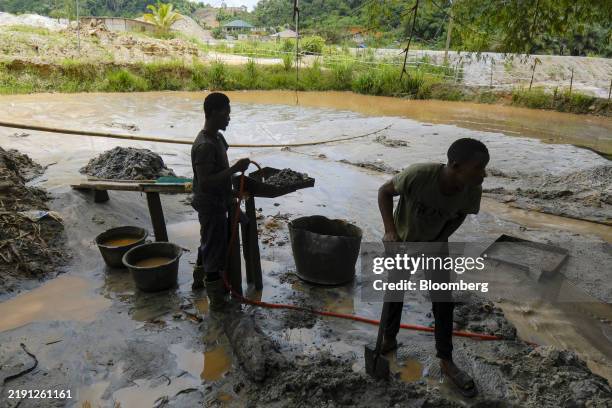July 1, 2025
A long-standing issue is flaring up again as Ghana and China find themselves at odds over the growing problem of illegal small-scale mining, commonly referred to as galamsey. With rivers poisoned, forests stripped, and farmlands destroyed, the blame game between the two countries is intensifying — and so are calls for genuine accountability.
The Heart of the Matter: Galamsey’s Growing Impact
In recent months, illegal mining operations across Ghana’s resource-rich regions, including the Western, Ashanti, and Eastern zones, have increased significantly. These unregulated activities, often conducted in remote areas, have left a trail of environmental devastation. Toxic substances like mercury and cyanide are polluting rivers and drinking water, endangering both human and ecological health.
Ghanaian officials have raised fresh concerns that many of the individuals involved are foreign nationals, particularly Chinese miners operating without licenses.
China Pushes Back: “We’re Not to Blame Alone”
In response, China’s ambassador to Ghana, Mr. Tong Defa, has strongly denied that Chinese nationals are solely responsible. He argued that many Chinese involved in galamsey are recruited by Ghanaians, often misled about the legality of their work. “It is unfair to target Chinese citizens when the root of the problem is far more complex,” he noted during a recent media briefing.
The ambassador emphasized that the Chinese government does not support illegal mining and has worked with Ghanaian authorities in the past to repatriate offenders.
A Tangle of Complicity
Behind the scenes, many experts believe that illegal mining thrives not just due to foreign participation, but because of local enablers — from landowners and chiefs to corrupt officials who turn a blind eye at checkpoints. Weak enforcement and inconsistent political will have further allowed galamsey to flourish despite numerous crackdowns.
In 2021, Ghana introduced stricter regulations to bar foreigners from participating in artisanal mining. However, enforcement remains patchy, and many operations continue under the radar.
What’s at Stake?
- Environment: Galamsey is devastating water bodies, such as the Pra and Ankobra rivers, which supply water to millions.
- Economy: The government loses billions of cedis in potential revenue as illegal operators avoid taxes and royalties.
- Reputation: For Ghana, the international perception of lawlessness poses a threat to investor confidence. For China, its image in Africa suffers amid rising anti-Chinese sentiment tied to mining issues.
A Way Forward?
Solving the crisis will require more than finger-pointing. Ghana must strengthen local enforcement, depoliticize regulatory bodies, and empower environmental agencies with real teeth. China, on its part, must hold its citizens accountable and support Ghana’s fight against illegal operations through diplomatic cooperation and technical assistance.
Ultimately, both nations share a stake in restoring Ghana’s environment and ensuring that mining — one of the continent’s richest resources — doesn’t come at the cost of its future.


